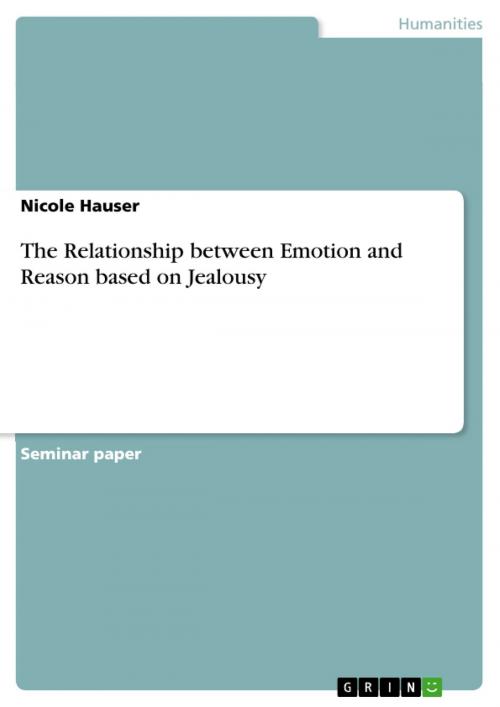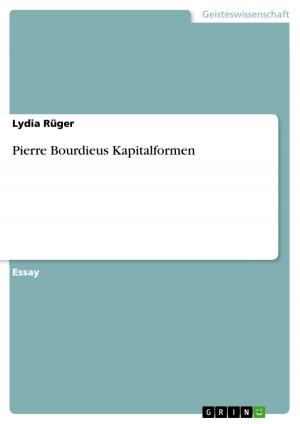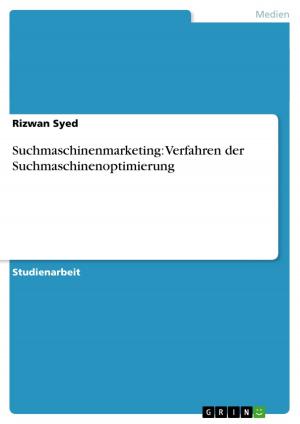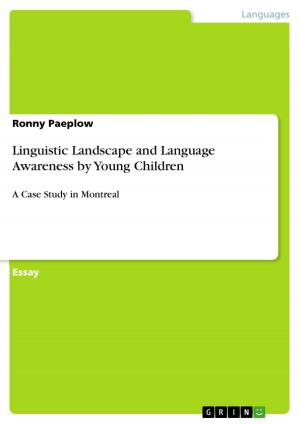The Relationship between Emotion and Reason based on Jealousy
Nonfiction, Religion & Spirituality, Philosophy| Author: | Nicole Hauser | ISBN: | 9783656961727 |
| Publisher: | GRIN Verlag | Publication: | May 13, 2015 |
| Imprint: | GRIN Verlag | Language: | English |
| Author: | Nicole Hauser |
| ISBN: | 9783656961727 |
| Publisher: | GRIN Verlag |
| Publication: | May 13, 2015 |
| Imprint: | GRIN Verlag |
| Language: | English |
Seminar paper from the year 2011 in the subject Philosophy - Theoretical (Realisation, Science, Logic, Language), grade: 2, University of Zurich (Philosophisches Seminar), course: Emotion, language: English, abstract: After an illustration of the relationship between reason and emotion defended by the philosophers, who do not claim the emotion to be rational, I elaborate the role of emotion as an aid to rationality. Therefore, I will introduce a concept of the emotion as an aid to bounded rationality. I will then go on pointing out the rational and irrational elements of the emotion jealousy in order to conclude with an argument, that is defending a more differentiated and relative view on the rationality of emotions. At first sight, jealousy seems to be a very unreasonable feeling. Especially the actions in consequence of jealousy are in several situations hard to comprehend for an external observer. This raises the question, if the emotion jealousy, which leads people to unreasonable activities, can be called unreasonable itself as well. How about the relationship between rationality and the emotion jealousy without considering the following actions? Many philosophers called emotions in general irrational some claimed the relationship between reason and emotion to be interdependent. Is the emotion influencing the reason or is the reason affecting emotions? Or are emotions rather an aid to rationality? Is a feeling like jealousy due to its dependency on temper a proof for the irrationality of emotions? For Descartes , reason and emotion are two distinct entities, while for Hume an emotion is neither called rational nor irrational . Aristotle by contrast calls for the rationality of emotions .
Seminar paper from the year 2011 in the subject Philosophy - Theoretical (Realisation, Science, Logic, Language), grade: 2, University of Zurich (Philosophisches Seminar), course: Emotion, language: English, abstract: After an illustration of the relationship between reason and emotion defended by the philosophers, who do not claim the emotion to be rational, I elaborate the role of emotion as an aid to rationality. Therefore, I will introduce a concept of the emotion as an aid to bounded rationality. I will then go on pointing out the rational and irrational elements of the emotion jealousy in order to conclude with an argument, that is defending a more differentiated and relative view on the rationality of emotions. At first sight, jealousy seems to be a very unreasonable feeling. Especially the actions in consequence of jealousy are in several situations hard to comprehend for an external observer. This raises the question, if the emotion jealousy, which leads people to unreasonable activities, can be called unreasonable itself as well. How about the relationship between rationality and the emotion jealousy without considering the following actions? Many philosophers called emotions in general irrational some claimed the relationship between reason and emotion to be interdependent. Is the emotion influencing the reason or is the reason affecting emotions? Or are emotions rather an aid to rationality? Is a feeling like jealousy due to its dependency on temper a proof for the irrationality of emotions? For Descartes , reason and emotion are two distinct entities, while for Hume an emotion is neither called rational nor irrational . Aristotle by contrast calls for the rationality of emotions .















